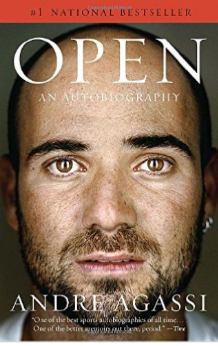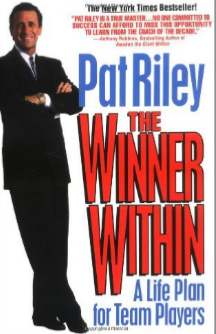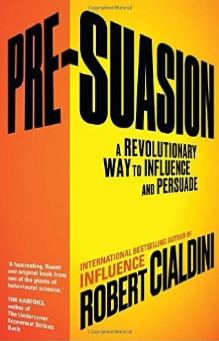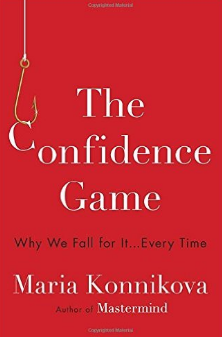I recently read “America The Anxious: How Our Pursuit of Happiness Is Creating a Nation of Nervous Wrecks” by Ruth Whippman. Below are the quotes I found most interesting. If you like them, buy the book here.
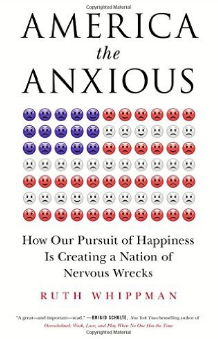 “It seems as though happiness in America has become the overachiever’s ultimate trophy. A modern trump card, it outranks professional achievement and social success, family, friendship, and even love. Its invocation deftly minimizes others’ achievements (“Well, I suppose she has the perfect job and a gorgeous husband, but is she really happy?”) and takes the shine off our own.” (3)
“It seems as though happiness in America has become the overachiever’s ultimate trophy. A modern trump card, it outranks professional achievement and social success, family, friendship, and even love. Its invocation deftly minimizes others’ achievements (“Well, I suppose she has the perfect job and a gorgeous husband, but is she really happy?”) and takes the shine off our own.” (3)
“But the more conversations I have about happiness, and the more I absorb the idea that there’s a glittering happy-ever-after out there for the taking, the more I start to overthink the whole thing, compulsively monitoring how I am feeling and hyper-parenting my emotions. Am I happy? Right at this moment? What about now? And now? Am I happy enough? As happy as everyone else? What about Meghan? Is she happier than me? She looks happier. What is she doing that I’m not doing? Maybe I should take up yoga. The whole process starts to become painfully, comically neurotic. Workaday contentment starts to give way to a low-grade sense of inadequacy when pitched against capital-H Happiness. THe goal is so elusive and hard to define, it’s impossible to pinpoint when it’s even been reached, a recipe for anxiety.” (8)
“It appears that somewhere along the line, the joy has been sucked out of American happiness.” (8)
“Happiness should be serendipitous, the by-product of a life well lived, and chasing it in a vacuum just doesn’t really work.” (9)
“Surprisingly, the higher the respondents rated happiness as a distinct personal ambition, the less happy they were in their lives generally and the more likely they were to experience symptoms of dissatisfaction and even depression.” (9)
“These studies concluded that paradoxically, the more people valued and were encouraged to value happiness as a separate life goal, the less happy they were.” (9)
“Increasingly, Americans are chasing happiness by looking inward into their own souls, rather than outward toward their friends and communities.” (18)
“”It was very striking,” Dr. Iris Mauss says. “It’s like a standard – you are supposed to be happy and it’s seen as being under your individual control. Happiness is not seen as something that comes out of living a good life, but an achievement you aim for, like it’s the individual’s responsibility to be happy. It got to the point that if I was in a bad mood, I would feel almost guilty, as though I was falling short of the ideal. It was making me anxious.”” (29)
“”It all comes back to this idea of self-focus,” Mauss says. “People monitor themselves. Am I happy yet? Am I happy enough? They are so focused on their own self and their own happiness that it comes at the expense of social connection. You can spend so much time focusing on what you are feeling that you just don’t have time to focus on others. And when you are with other people you find you don’t enjoy social activities as much because you are constantly worrying about your own emotions and not getting as engaged.” (32)
“The systemic packaging and selling of happiness in the form of books, DVDs, webinars, and courses was last estimated to be worth around ten billion dollars, roughly the same size as Hollywood, the other great purveyors of the happy-ever-after.” (36)
“Therapist Kimberly Knoll says, “Thinking that you have complete control over your emotions and if you don’t feel happy it’s your fault, that can make people feel shame. It’s anxiety inducing.”” (91)
“As soon as an American baby is born, its parents apparently enter into an implicit contractual obligation to answer all questions about their hopes for their tiny offspring’s future with the words: “I don’t care, as long as he’s happy” (the mental suffix “at Harvard” must remain unspoken).” (104)
“A group of German academics found that the average drop in happiness in the two years following the birth of a first child is greater than that after divorce, unemployment, and even the death of a partner.” (119)
“Recent research suggests that the more intensely we approach the job of parenting, and the more strongly we believe that our child’s development and happiness is dependent on our own actions as parents, the more unhappy we become.” (123)
“A growing body of research demonstrates that the stronger a country’s welfare system and social safety nets, the happier the parents of that country are in comparison with nonparents.” (125)
“Religious people are significantly more likely to report being “very happy” than nonbelievers. A wide range of other studies has shown repeatedly that identifying as part of a religious community is a predictor of greater life satisfaction, higher self-esteem, more social ties, and an ability to cope better with difficult life events.” (129)
“It isn’t the inner journey of private religious belief that is making religious people so happy but the community and social connectedness that comes with a religious lifestyle.” (140)
“Almost all the studies that show that religious people are happier than the nonreligious also show that they tend to have a greater number of social ties and stronger and more supportive communities. When the studies control for these increased levels of social connection, the link between religion and happiness almost always disappears.” (140)
“Perhaps having a strict blueprint for how to live actually removes the anxiety from the search for happiness.” (149)
“The more religious states tend to have higher-than-average rates of antidepressant use.” (156)
“People who reported feeling the strongest societal pressure to be happy also reported feeling negative emotions most frequently and strongly.” (165)
“Dr. Brock Bastian commented, “In short, when people perceive that others think they should feel happy and not sad, this leads them to feel sad more frequently and intensely.” (165)
“Happiness is the currency of social media and the loophole in the generally accepted no-bragging rule.” (167)
“In a culture that both insists that we have complete control over our happiness and too often equates unhappiness with inadequacy, social media gives us an unprecedented ability to craft and present a happy front. This shifts the business of bliss away from how happy we feel, to the perhaps more culturally urgent matter of how happy we look.” (167)
“It’s a strange mix of oversharing and undersharing. Because although we increasingly share every aspect of the minutiae of our lives for public appraisal and critique, none of it paints a remotely representative picture.” (169)
“We all post our carefully edited best moments and, although at a rational level we know that other people are doing the same, we somehow believe that everyone else’s life is Really Like That.” (171)
“Although their data showed that people would click on and read both positive and negative stories in roughly equal numbers, people would share far greater numbers of positive stories, and it was almost exclusively positive stories that would go viral. Broadly speaking, the more heartwarming positivity that can be packed into a story, the more likely we are to want to be associated with it and to click the share button.” (181)
“Research carried out in the late eighties on sets of twins showed that around half our happiness can be attributed to our genes. Each of us has a genetic set point to which, like a high-achieving homing pigeon, we tend to return.” (194)
“The idea that our circumstances are trivial to our happiness, that what we really need to do in order to be happy is to think positive, and that keeping a gratitude journal or counting our blessings can potentially have quadruple the impact on our happiness than the love of our parents, whether we live in affluence or poverty, or whether or not we suffer from a debilitating chronic illness seems like a stretch at best.” (196)
“According to Diener, a later analysis of the same data concluded that when it comes to long-term happiness, the figure was actually more like 80 percent, a finding which prompted Diener to write the following sentence, “based on the later heritability estimate, it could be said it is as hard to change one’s happiness as it is to change one’s height,” an observation that is hard to square with the idea that we can transform our happiness by 40 percent by thinking positive and counting our blessings.” (198)
“The more I look into it, the more it seems that the claim that circumstance matters little to happiness might be based on some serious cherry-picking of the evidence.” (199)
“The CDC estimates that rates of depression among poor Americans are roughly three times that in the general population. White people in America consistently report as significantly happier than African Americans, irrespective of income, with the percentage of African Americans reporting that they are “not too happy” roughly double that of white Americans saying the same. Men are significantly happier than women, and the women who do the most “women-y” type things, stay-at-home mothers, are the least happy of all.” (199)
“Above $75,000, money still makes a significant difference to what most people would consider the most important measure of happiness – a person’s satisfaction with is or her life when taken as a whole – and this trend never levels off in the data, no matter how high up the income scale you go. Above an income of $75,000 what does level off is any improvement in the kind of mood that the person was in the day before.” (200)
“Linda Tirado says, “I wouldn’t even mind the degradations of my work life so much if the privileged and powerful were honest about it. Instead, we’re told to keep smiling, and to be grateful for the chance to barely survive while being blamed for not succeeding.”” (203)
“Coyne believes that positive psychology is a closed field, in which everyone is highly invested in showing the interventions in the best possible light and people are reluctant to criticize one another’s claims.” (209)
“Drug trials sponsored by pharmaceutical companies, for example, more often show favorable results for the drug in question than independent research.” (210)
“I ask the guy in the cafe, whether he would feel the same if, in theory, it could be absolutely definitively scientifically proven that things couldn’t change. He tells me that it wouldn’t matter to him. That he would still read, still try. Then I realize. The product isn’t happiness. It’s hope.” (214)
“I’ve realized over the last year or so of obsessing over this topic, that if we want to be happy, what we really need to do is to stop thinking about happiness.” (219)
Liked the quotes? Click here to buy the book.

